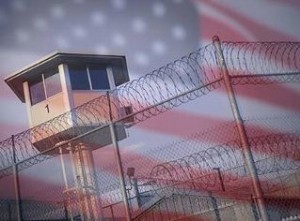Geo Group Falls as Florida Prison Privatization Is Blocked

Geo Group feels the pressure after a judge blocked the state’s plan to pursue its privatization prison scheme.
###
By Sophia Pearson
Sept. 30 (Bloomberg) — Geo Group Inc., the Florida-based private prison operator, fell as much as 5 percent after a judge blocked the state’s plan to pursue privatization at as many as 29 prisons in 18 counties.
The legislature’s move to bury key details on privatization in the state budget is unconstitutional, Leon County Circuit Court Judge Jackie Fulford in Tallahassee ruled. The 2012 budget provision changes the legal process for privatizing facilities and directs the Department of Corrections to replace state employees with private ones at certain prisons.
“This court concludes that if it is the will of the legislature to itself initiate privatization of Florida prisons, as opposed to DOC, the legislature must do so by general law, rather than using the hidden recesses of the General Appropriations Act,” Fulford said in the ruling.
The ruling is a setback for prison operators such as Boca Raton-based Geo Group, which said last month that it would invest as much as $3 million to compete for a contract to privatize more than 16,000 beds in South Florida.
Abraham Cohen, a Geo spokesman, didn’t immediately return a voice-mail message seeking comment on the ruling.
After falling as low as $18.32 in New York Stock Exchange composite trading on the New York Stock Exchange, Geo shares fell 68 cents or 3.5 percent to $18.56.
Florida’s Department of Corrections today suspended its request for bids from private operators until further notice. The state was expected to open bids on Oct. 4, department spokeswoman Gretl Plessinger said in a phone interview. The department is reviewing Fulford’s decision, Plessinger said.
“We’re trying to determine what next steps we need to take,” Plessinger said.
The department had sought one contract for a private operator for all 29 facilities, according to Fulford’s ruling.
Correctional officers accused state leaders of trying to skirt debate on the issue by folding details of the privatization plan into a part of the bill that’s generally reserved for a summary of its contents.
“It’s certainly a win for us,” Kelly Overstreet Johnson, an attorney for the Florida Police Benevolent Association, said in a phone interview. “We recognize it’s likely going to be appealed so this is the first stop.”
The association, which represents correction and police officers in the state, has argued that the state’s actions were unconstitutional and likely were a result of not having enough votes to privatize the facilities. The group contends the state failed to follow appropriate procedures such as vetting the proposal through committees, doing a cost-benefit analysis and providing an opportunity for public input.
The case is Baiardi v. Tucker, in his capacity as Secretary of the Florida Department of Corrections, 2011CA1838, Circuit Court of the Second Judicial Circuit (Leon County) Florida.
–With assistance from Jerry Hart in Miami and Phil Milford in Wilmington, Delaware. Editors: Peter Blumberg, Fred Strasser
To contact the reporter on this story: Sophia Pearson in Wilmington at [email protected]
To contact the editor responsible for this story: Michael Hytha at [email protected]












Be the first to comment
Sign in with